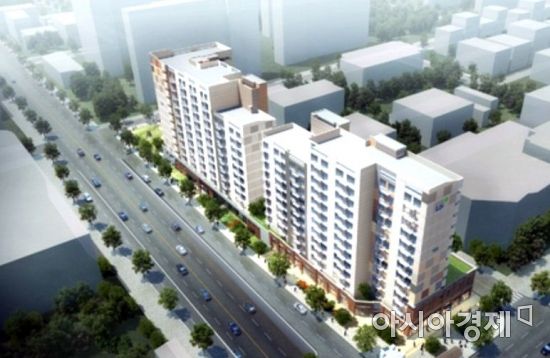Happy House.
–
[아시아경제 조강욱 기자] #. Mr. A, who moved into the Happy House in Guro-gu, Seoul, was evicted in October 2019. At that time, it was confirmed that Mr. A owned the Maserati’Ghibli’, which cost 9.908 million.
As the overheating of house prices continues, it is becoming a problem because there are constant’moving tricks’ in public rental housing for the common people. Accordingly, a bill was proposed to prevent the’treatment’ of tenants who live in public rental housing even when their property or income exceeds the standard.
According to the political and real estate industry on the 11th, a member of the Democratic Party, Shin Young University, passed the’Partial Amendment to the Special Public Housing Act’, which requires regular checks on whether the property and income of public rental housing tenants meet the standards set by laws Sun representative initiative.
The main point of the amendment is to require the tenant to regularly check the tenant’s assets and income standards while they reside. In particular, even after moving in to public rental housing, public housing businesses can cancel the lease contract or refuse to renew the contract for those who exceed the occupancy criteria.
The current law stipulates that if the lessee’s assets or income exceed the statutory standards, the lease contract can be terminated or the lease contract can be refused. However, the method or standards for determining the tenant’s assets or income are not specified. It is difficult to find grounds for rejecting contract termination and renewal, as well as detecting’al-rich’ tenants and’quick residence’ tenants. For this reason, it is possible to meet the qualification requirements according to assets and income only when moving into public rental housing, and to be able to’trick in’ where actual assets or income far exceed the standard.
In fact, an inspection of the state administration in October last year revealed that 1,900 cases of ineligible occupancy were detected in public rental housing in Seoul over the past five years due to excessive income or illegal subsidy. There are 400 cases per year.
Looking at the reasons for ineligibility, home ownership (1108 cases) was the most. 437 out of 10 ineligible cases occurred in redeveloped rental housing. This is 82% of all ineligible tenants in redeveloped rental housing. Following that, there were many ineligible cases in the order of income excess (551 cases), real estate excess (118 cases), and automobile value excess (68 cases). In most cases, ineligible tenants were detected at the time of renewal after meeting the qualification criteria for the first move-in.
 Maserati Ghibli
Maserati Ghibli–
In particular, in addition to the Maserati Ghibli case worth 100 million won, another tenant residing in the National Rental Housing owned a Mercedes E300 with a vehicle price of 5352 million won and was evicted because of exceeding the standard. These vehicles exceeded two to four times the national lease and happy housing car limit of 24.6 million won.
Rep. Shin said, “Public rental housing is a project that invests the government’s or local government’s finances to stabilize the housing of the vulnerable, and it is necessary to thoroughly check the tenants who do not meet the requirements for housing.” First of all, we will take the lead in improving the legal system so that it can be supplied.”
Reporter Jo Kang-wook [email protected]
– .


